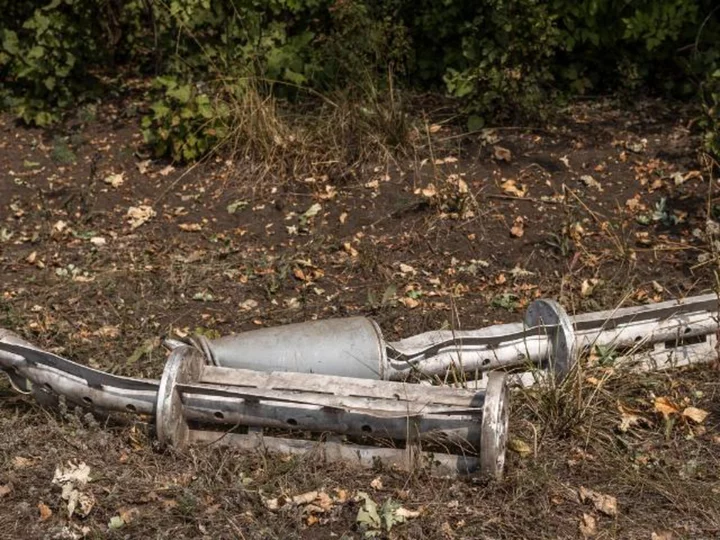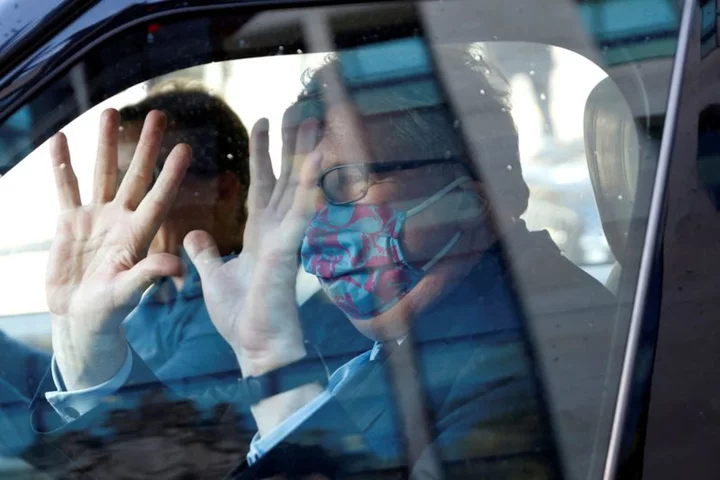The US will send cluster munitions to Ukraine as part of a new military aid package, National Security Adviser Jake Sullivan confirmed on Friday, following months of debate within the Biden administration about whether to provide Kyiv with the controversial weapons banned by over 100 countries including key US allies.
"I'm not going to stand up here and say it is easy," Sullivan told reporters. "It's a difficult decision. It's a decision we deferred. It's a decision that required a real hard look at the potential harm to civilians. And when we put all of that together, there was a unanimous recommendation from the national security team, and President Biden ultimately decided, in consultation with allies and partners and in consultation with members of Congress, to move forward on this strategy."
President Joe Biden approved the transfer of the munitions this week, officials told CNN. CNN first reported last week that the administration was strongly considering the move, as Ukrainians forces have struggled to make major gains in their counteroffensive against Russia.
The munitions will be compatible with the US-provided 155 mm howitzers, a key piece of artillery that has allowed Ukraine to win back territory over the last year, according to the Pentagon. In a statement announcing a new round of aid to Ukraine, the Defense Department said the US will be providing "155mm artillery rounds, including DPICM," or Dual Purpose Improved Conventional Munitions -- the type of cluster munition the US currently has in its stockpiles.
Cluster munitions scatter "bomblets" across large areas that can fail to explode on impact and can pose a long-term risk to anyone who encounters them, similar to landmines. Over 100 countries, including the UK, France, and Germany, have outlawed the munitions under the Convention on Cluster Munitions, but the US and Ukraine are not signatories to the ban.
German defense minister Boris Pistorias said on Friday that providing the munitions to Ukraine is "not an option" for Berlin because it is a signatory to the convention. But he declined to weigh in on the US' decision to do so. "Those countries that have not signed the convention - China, Russia, Ukraine and the U.S. - it is not up to me to comment on their actions."
Human rights advocates have condemned the move. Human Rights Watch said in a report on Thursday that "transferring these weapons would inevitably cause long-term suffering for civilians and undermine the international opprobrium of their use."
Biden will overrule statutory restrictions imposed by Congress on exporting munitions with a greater than one percent "dud" rate -- the munitions the US is set to provide may have a dud rate of up to 2.35%, Pentagon Press Secretary Brig. Gen. Patrick Ryder said on Thursday.
A higher dud rate means more of the small bomblets scattered by cluster munitions fail to explode on impact, posing a risk to civilians who may encounter them later. Ryder said the Russians have been using cluster munitions with a dud rate of as high as 40%.
Ukrainian officials have been pushing the US to provide the munitions since last year, arguing that they would provide more ammunition for Western-provided artillery and rocket systems, and help narrow Russia's numerical superiority in artillery.
Biden was reluctant at first, officials told CNN, given how many countries worldwide have banned the munitions.
But changing battlefield conditions inside Ukraine over the last three weeks prompted US officials to give them renewed and serious consideration, and the Pentagon recommended to Biden that the munitions be provided to Ukraine at least on a temporary basis until non-cluster ammunition is able to be resupplied, officials said.
It is not clear whether the heavy amount of artillery ammunition the Ukrainians have been expending day-to-day would be sustainable without the cluster munitions if the counteroffensive drags on, officials and military analysts said. Biden ultimately agreed with their assessment.
Russia's Ambassador to Belarus Boris Gryzlov said the US decision was "a move of desperation."
"As part of the continued assistance to the Kiev regime, Washington is considering the possibility of sending cluster munitions to Ukraine. There has been talk about it since spring," Gryzlov told Russian state news agency TASS on Friday.
"Now, the 'hawks' in the West have realized that the much-advertised counter-offensive of the Ukrainian armed forces did not go according to plan, so they are trying at all costs to give at least some impetus to it. In fact, it is a move of desperation," Gryzlov said.









